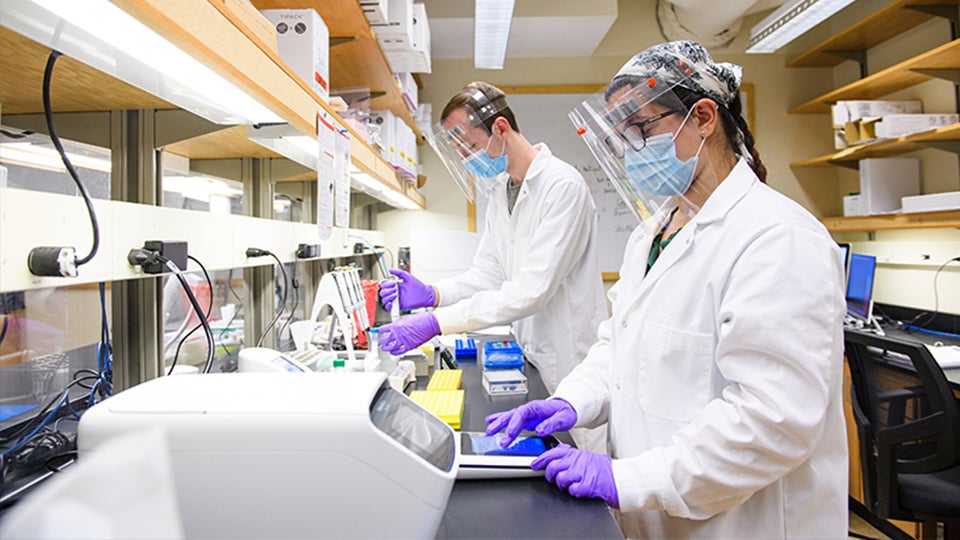Purdue team studying spread of COVID variants in Indiana
WEST LAFAYETTE, Ind. (Inside INdiana Business) — A team of Purdue University scientists is using its expertise in tracking the spread of malaria in Africa to track COVID-19 in Indiana.
The university says the lab, led by Assistant Professor of Biological Sciences Giovanna Carpi, pivoted its efforts to study the virus that causes COVID, as well as its variants, when the pandemic began.
Purdue says the lab studies the genomics of infectious diseases to better understand how they spread.
“We study genomic epidemiology, large-scale genomic studies of communicable disease, and our lab is investing in new sequencing and informatic technologies to study the genomes of infectious diseases to understand transmission,” Carpi said. “This allows us to do sequencing in real time, to conduct genomic surveillance, which has transformed our understanding of the spread of diseases.”
- COVID-19 vaccinations in Indiana: Get details and sign up
- Schedule a COVID-19 test in Indiana
- Indiana coronavirus resources and timeline of events
- More coronavirus coverage from WISH-TV
Carpi says while malaria and SARS-CoV-2 are very different, the procedures and computations to study their spread are very similar. She says the coronavirus may be easier to study because its genome is smaller and easier to monitor.
The lab is partnering with the Purdue University Animal Disease Diagnostic Laboratory to track the variants of the disease.
“We do this kind of tracking all the time for malaria,” Carpi said. “We switched quickly and were able to adapt to sequencing SARS-CoV-2 in December 2020 as variants of concern were introduced and started spreading in the United States. We had to scale up. We are the only lab in Indiana – along with our partners at the Animal Disease Diagnostic Laboratory – to be able to switch overnight to studying the SARS-CoV-2 genome. I have an amazing lab team, and we have been able to adapt with a very fast turnaround time.”
Carpi says the Indiana State Department of Health has sent samples of the viral genomes to her team because they “can do the work for them faster than the CDC labs can.” Since January, the team has sequenced and studied about 200 complete genomes.
Purdue says the information gathered from the team’s efforts will help to ensure city, state and university leaders have the most accurate and up-to-date information possible on the spread of the virus.



